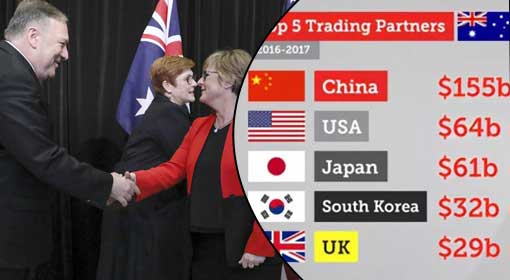Canberra/Beijing – Australian TV anchor Cheng Lei has been put under house arrest without giving any reasons, and there are indications that the tension between China and Australia will fester over the issue. Lei is working for the government news channel CGTN, and she is an Australian citizen. Last month, the Chinese agencies had detained her for interrogation. Now, information has been received that Lei has been arrested, all of a sudden, and no reason has been given for the arrest. Australia has protested against Lei’s arrest and has said that efforts to provide all the legal assistance to her will be made.
Chang Lei has been working for the Chinese news Channel CGTN for the last few years. In August, she was suddenly placed under detention. Australia was informed regarding the arrest on the 14th of August. But Australia said that China refused any diplomatic or legal access to her. No reasons have been specified for the interrogation and arrest of Lei, and the sources are claiming that she must have been detained under suspicion of espionage.
 This is the second instance of action being initiated against Australian citizens of Chinese origin in the last one year. A few months ago, Dr Yang Hengjun had been detained by China, and he was charged with espionage. Australia had registered a strong protest against the Chinese action. Thereafter, this action against Lei, without giving any reasons, indicates that the tensions between Australia and China are festering further.
This is the second instance of action being initiated against Australian citizens of Chinese origin in the last one year. A few months ago, Dr Yang Hengjun had been detained by China, and he was charged with espionage. Australia had registered a strong protest against the Chinese action. Thereafter, this action against Lei, without giving any reasons, indicates that the tensions between Australia and China are festering further.
While the action is being carried out against Lei, the bill for review of agreements signed by Australian entities with foreign governments has been presented in the Australian parliament. Chinese media have reacted very sharply on the bill. Chinese government mouthpiece, the Global Times, has spewed fire against the bill, publishing two editorials in one day. The article taunts that Australia is acting under directions from the United States, and if it continues to tread the path, Australia will soon be known as the poorest country in the Asia-Pacific region.











